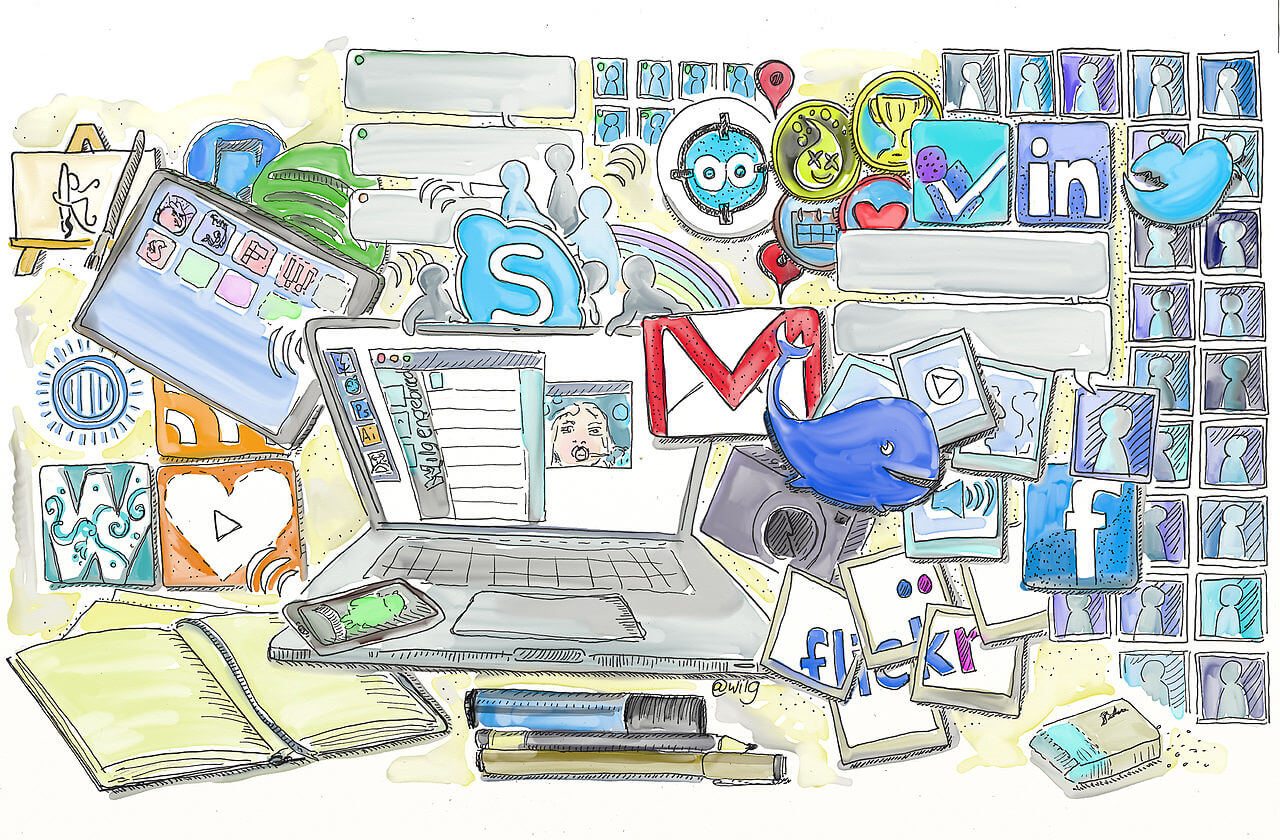The only thing to fear is FOMO itself
FOMO, or Fear Of Missing Out, may seem like something of a strange subject to write an article on. For most, the acronym is something jokingly thrown around in discussions regarding social engagements; an inconsequential phrase in largely inconsequential conversations.
When you look on Facebook in the evening and see a collage of club selfies, you might turn to a flatmate and joke that you’re experiencing FOMO. Or when you see a school friend tweeting about the stunning vistas of South East Asia they’re witnessing on their gap year, you might feel a bit of FOMO.
When you see a school friend tweeting about the stunning vistas of South East Asia
Most of the time you’ll sigh and get on with your day, not really thinking much more about it, but I don’t think it’s as simple as that, because I think it’s indicative of a sentiment much larger and more significant to your wellbeing; a reflection of your approach to life as a whole.
Life is a garden of forking paths; when you choose one path, you reject another. As such it’s impossible to experience everything that it has to offer, because you’re forced to pass up on some experiences in order to engage with others. For years this has been manageable as people have made decisions about their relationships, their careers, and their social lives.
As such it’s impossible to experience everything that it has to offer
They’ve come to terms with their choices because they only witness the events on path that they’ve taken, and nothing else. As such, most feel little anxiety about the choices they make unless something goes wrong because, as the old adage goes, “you cant miss what you’ve never had”.
But social media has changed the game. With platforms that provide up to the minute feedback on events around the world, we can now see exactly what we’re missing, and it’s distressing. As a generation we’re forced into a position whereby, no matter what choice we make, we become acutely aware of what we’re missing out on.
We can now see exactly what we’re missing, and it’s distressing
Pass up on a night out? Those club photos full of smiling friends will make you regret it. But choose the night out? Those tweets about the latest episode of *insert quality television show here* as you stand in the freezing queue will make you wish you’d stayed in.
The fact is that in a predicament such as this you cannot win. That fear of missing out, that anxiety about letting opportunities pass you by, will always exist. And it’s potentially very damaging. The reality is that FOMO, itself characterised by a deep anxiety, speaks to a larger problem of anxiety and depression that is plaguing our generation.
That fear of missing out, that anxiety about letting opportunities pass you by, will always exist
With reported cases of depression and anxiety on the rise, particularly within universities, we must begin to ask what’s fuelling such an increase. Partly it’s a by-product of a greater openness and acceptance of such conditions, but equally the cases are becoming more frequent.
University is a deeply stressful experience for many, and as fun as it is, there’s a constant pressure to make the right choices for your own personal enjoyment, as well as your career prospects. In such a pressurised setting, FOMO makes it almost impossible for you to feel content with your choices.
There’s a constant pressure to make the right choices for your own personal enjoyment, as well as your career prospects
There will always be a better circle, a cooler society, a more attractive date that you’re missing out on. You can never feel content with your choices or your ability to make such choices, and this serves only to amplify feelings of self-doubt, anxiety and depression.
What seems like a throwaway acronym is actually a reflection of a deep seated cultural problem driven by social media and the need to constantly boast about the quality of your own life in comparison to others. Ultimately, nobody wins from FOMO, everyone just ends up feeling like shit.
This serves only to amplify feelings of self-doubt, anxiety and depression
I can’t offer a solution to the wider problem of social and societal anxiety, but I can put FOMO into perspective for you. When you check your phone in the night and see those smiling club photos, think instead of freezing cold lines with the pushy bouncers, the cramped, vomit filled toilets and the flatmates sobbing in the smoking area, then turn off your phone and return to your warm bed. You’re never really missing out on much.

Comments (1)
This is a really really good article